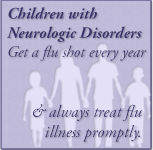Screening and Diagnosis of Cerebral Palsy

Diagnosing cerebral palsy (CP) at an early age is important to the well-being of children and their families. Diagnosing CP can take several steps:
- Developmental Monitoring
- Developmental Screening
- Developmental and Medical Evaluations
Developmental Monitoring
Developmental monitoring (also called surveillance) means tracking a child’s growth and development over time. At each well-child office visit, the doctor monitors the child’s development. The doctor does this by asking parents if they have any concerns about their child’s development, taking or updating the child’s developmental history, and watching the child during the exam to see how he or she moves.
It is important for doctors to monitor the development of all children, but especially those who are at a higher risk for developmental problems due to preterm birth or low birthweight.
If any concerns about the child’s development are raised during monitoring, then a developmental screening test should be given as soon as possible.
Developmental Screening
During developmental screening a short test is given to see if the child has specific developmental delays, such as motor or movement delays. Some developmental screening tests are in the form of interviews or questionnaires completed by parents, others are tests that the doctor gives to the child. The American Academy of Pediatrics recommends that all children be screened for developmental delays during regular well-child office visits at:
- 9 months
- 18 months
- 24 or 30 months
When a child is 9 months of age, many issues involving movement can be seen easily. However, mild movement delays that were not found at the 9-month screening might be easier to see when the child is 18 months of age. By the time the child is 30 months of age, most movement delays can be found.
A developmental screening test also can be given whenever the child’s parents or doctor or others involved in the care of the child have concerns about the child’s development. If the results of the screening test are cause for concern, then the doctor will make referrals for:
- Developmental and medical evaluations
AND
Developmental and Medical Evaluations
The goal of a developmental evaluation is to diagnose the specific type of disorder that affects a child. To evaluate movement or motor delays, the doctor will look closely at the child’s motor skills, muscle tone, reflexes, and posture, and take a careful medical history from the parents. The doctor will try to rule out other disorders that could cause similar problems.
Because many children with CP also have related developmental conditions such as intellectual disability; seizures; or vision, hearing, or speech problems, it is important to evaluate the child to find these disorders as well.
The developmental evaluation can be performed by the primary care doctor or by a specialist. Specialists who can do this type of developmental evaluation include:
- Developmental pediatricians or neurodevelopment pediatricians (doctors with special training in child development and in evaluating with children with developmental problems).
- Child neurologists (doctors with special training in childhood diseases of the brain, spine, and nerves).
- Pediatric physiatrists or pediatric rehabilitation doctors (doctors with special training in physical medicine and rehabilitation for children).
In addition to the developmental evaluation, additional tests can be done to look for a cause of CP. Specialists might suggest brain imaging tests, such as x-ray computed tomography (CT scan) or magnetic resonance imaging (MRI). An electroencephalogram (EEG), genetic testing, or metabolic testing, or a combination of these, also might be done.
CP generally is diagnosed during the first or second year after birth. But if a child’s symptoms are mild, it is sometimes difficult to make a diagnosis until the child is a few years older.

If You’re Concerned
If you think your child is not meeting movement milestones or might have CP, contact your doctor or nurse and share your concerns.
If you or your doctor is still concerned, ask for a referral to a specialist who can do a more in-depth evaluation of your child and assist in making a diagnosis.
At the same time, call your state’s public early childhood system to request a free evaluation to find out if your child qualifies for intervention services. This is sometimes called a Child Find evaluation. You do not need to wait for a doctor’s referral or a medical diagnosis to make this call.
Where to call for a free evaluation from the state depends on your child’s age:
- If your child is not yet 3 years old, contact your local early intervention system.
You can find the right contact information for your state by calling the Early Childhood Technical Assistance Center (ECTA) at 919-962-2001 or visit the ECTA website.
Learn more about early intervention »
- If your child is 3 years of age or older, contact your local public school system.
Even if your child is not yet old enough for kindergarten or enrolled in a public school, call your local elementary school or board of education and ask to speak with someone who can help you have your child evaluated.
If you're not sure who to contact, call the Early Childhood Technical Assistance Center (ECTA) at 919-962-2001 or visit the ECTA website.
Learn more about this process »
- Page last reviewed: February 3, 2017
- Page last updated: July 1, 2015
- Content source:



 ShareCompartir
ShareCompartir